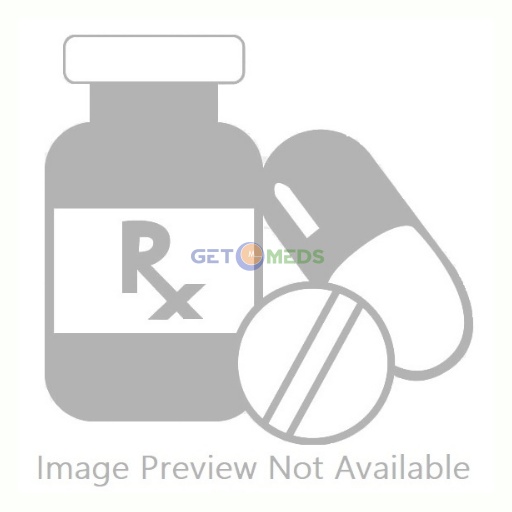All Details About Pizol Syrup
Find out detailed description, uses, directions of use, side effects, warnings and precautions, frequently asked questions about Pizol Syrup
Description:
Pizol Syrup is commonly prescribed in children to treat fever, body ache as well as allergic symptoms associated with common cold like runny nose, cough, sneezing, and watery eyes. Also, it is one of the commonly used medicines in chickenpox for symptomatic relief.Donate Pizol Syrup to your child by mouth with or without food, preferably at a fixed time. Children often have a sensitive stomach and complain of stomach upset while taking medicines. Prefer giving this medicine with food if this happens. Forever remember that the dosing schedule provided by your child’s doctor depends on the type of symptoms your child has, so make sure to follow the prescribed dose, time, and way strictly. If your child vomits within 30 minutes of taking this medicine, give the same dose again.
Some of the minor and temporary side effects that your child may experience while taking this medicine include vomiting, diarrhea, nausea, dizziness, sleepiness, and skin rash. Usually, these episodes subside once your child’s body adapts to the medicine. In case these side effects persist or become bothersome for your child, consult your child’s doctor without any delay.
Share your child’s complete medical history with your child’s doctor, including any ongoing medicine regime or history of any allergy, heart problem, blood disorder, birth defects, airway obstruction, lung anomaly, skin disorder, liver impairment, and kidney malfunction. This information is critical for dose alterations and for planning your child’s overall treatment.
Directions For Use:
Ordinary side effects of Pizol
- Vomiting
- Nausea
- Diarrhea
- Rash
- Dizziness
Side Effects:
Pizol Syrup does not pose serious side effects and is well-tolerated by children. In case the side effects do occur, they’re likely to subside once the body adapts to the medicine. Consult your child’s doctor if these side effects persist or bother your child. The most common side effects include-Warning & Precautions:
Kidney
SAFE IF PRESCRIBED
Pizol Syrup is safe to use in patients with kidney disease. No dose adjustment of Pizol Syrup is recommended.
However, caution is advised in patients with severe kidney disease as it may cause excessive sleepiness in them.
However, caution is advised in patients with severe kidney disease as it may cause excessive sleepiness in them.
Liver
CAUTION
Pizol Syrup should be used with caution in patients with liver disease. Dose adjustment of Pizol Syrup may be needed. Please consult your doctor.
The use of Pizol Syrup is not recommended in children with severe liver disease and active liver disease.
The use of Pizol Syrup is not recommended in children with severe liver disease and active liver disease.
FAQs:
Q. Is it safe to give Pizol Syrup to children less than 1 year old?
Pizol Syrup should not be used in children who are less than 2 years of age because it has the potential of causing fatal respiratory depression.
Q. What if I give an overdose of Pizol Syrup by mistake?
Prolonged or excess intake of Pizol Syrup can put your child at risk of developing serious side effects like bradycardia, decreased blood pressure, confusion, delirium, disorientation, dizziness, drowsiness, and hallucinations. Forever stick to the prescribed dose. To pour out the right dose, use the calibrated cup provided with the medicine by the manufacturer. Do not use a kitchen teaspoon as it will not give the correct estimate.
Q. When will my child’s condition improve after taking Pizol Syrup?
Pizol Syrup usually starts working within 30 to 60 minutes of intake and shows its peak effect within 3 to 4 hours. Your child may start to feel better after a few doses. In case the pain or fever persists longer, consult your child’s doctor immediately.
Q. Where should I keep Pizol Syrup?
Retain Pizol Syrup out of the reach and sight of children to avoid any accidental intake. Also, it should be stored at room temperature, in a dry place, away from direct heat and light.
Q. Can Pizol Syrup make my child sleepy?
Pizol Syrup may cause mild drowsiness, making your child feel sleepy. So, be cautious and never give this medicine if your child is suffering from a sleep disorder as this medicine can mask the symptoms of underlying sleep disorders like insomnia. It is always best to consult your child’s doctor before giving this medicine to your child.
Q. In what conditions should Pizol Syrup be given with caution?
It is advised to use Pizol Syrup with caution if the child has malnutrition, G6PD deficiency, liver disease, or any medicinal allergy. So, do not hesitate to share your child’s complete medical history with the doctor as that will help the doctor decide whether the medicine is safe for your child or not.
Q. When should I call my child’s doctor right away?
Do not delay calling your child’s doctor if your child starts to show side effects like irregular heartbeat, complaints of urinary retention, vision problem, muscle spasm, irregular bodily movements, and sudden weakness.
Disclaimer:
Getomeds primary intention is to ensure that its consumers get information that is reviewed by experts, accurate, and trustworthy. The information and contents of this website are for informational purposes only. They are not intended to be a substitute for professional medical advice, diagnosis, or treatment. Please seek the advice of your doctor and discuss all of your concerns about any disease or medication. Do not disregard or postpone seeking professional medical advice because of something you read on Getomeds. Our mission is to support, not replace, the doctor-patient relationship.
Recommended Substitute
GetOmeds
